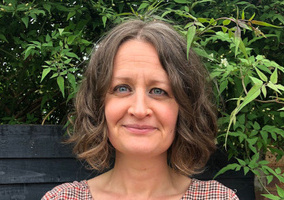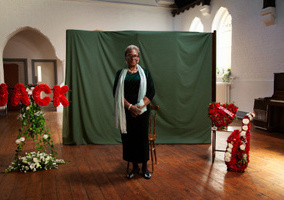Charities are on the frontline in the fight against legacy fraud, said Daniel Pepper last Friday.
Pepper was speaking at the Institute for Legacy Management (ILM) Annual Conference. He is the senior legacy income manager at Royal National Institute of Blind People (RNIB) and has been in the role for seven years.
“The most important thing your charity has to deflect and identify fraud is you,” Pepper said.
He urged charities to talk to each other and share experiences in the fight against legacy fraud.
Pepper told the audience about legal cases the RNIB has dealt with. He spoke of one case where RNIB and Blind Veterans UK (then St Dunstan’s) were both owed money from a woman’s will.
When RNIB contacted the charity, they were sent a differing set of accounts that showed that £250,000 was missing. It became apparent that a solicitor had stolen money from the woman’s will.
He said: “The only way this guy got found out is because my colleague spoke to another charity that got the information. You’re on the frontline against fraud in legacy work.”
Make sure to ask questions
Pepper went on to discuss another legacy case where he identified fraud by asking a simple question.
“One case stood on two words and a figure on a set of accounts that didn’t look right. And it was legal costs, £350,” he said.
Pepper said after asking the solicitor for a copy of the relevant legal advice he became very defensive.
RNIB then discovered that the solicitor had altered the will of the woman who had left the money to charity.
Five days before the woman died, the solicitor had changed her will to give himself her house, which was valued at £500,000.
The charity ended up taking the solicitor to the High Court for his crimes. His two offices in Hampshire were shut down.
Pepper said: “Two words and one figure in a set of accounts, which you could pick up. If you’re unsure, phone one of the other charities or email.”
He reassured the audience of charity professionals that they should feel comfortable asking questions about the legacy income they receive.
He continued: “It’s our charity’s money, we’re entitled to that. This is not something there should be an argument about. Someone has taken that time to say 'I want these charities to benefit and I want them to benefit a lot.' There is no question about it.”
Fraud particularly affects the charity sector
Bates Wells, the headline sponsor of the ILM event, also had speakers on the panel about fraud.
Mindy Jhittay, senior associate at Bates Wells, said: “Fraud happens across the board and particularly affects the charity sector.”
Jhittay said that approximately £40m per year is lost to legacy fraud. Charities lost £8m to fraud in 2020, according to Action Fraud.
She continued: “Because it doesn’t happen all the time it’s easy to forget that it can happen so it’s important to be alive to those issues.”
Jhittay warned the audience to be wary of legal claims.
She said: “Though it might not be fraud as such, it could be that there’s an element of bad faith involved in notorious claims.”
For example, if someone claims that a deceased family member verbally committed assets to them without having any witnesses or written evidence to confirm it.
She urged charities to remain aware of these issues when conducting legacy work.
Related articles












